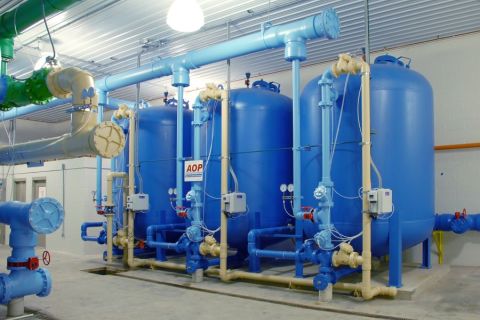When Halliburton Baroid introduced the INTEGRADE diesel-based fluid system, it was the first and only of its kind. Containing no organophilic clay, lignite, or gilsonite, the system requires fewer chemical additives than conventional diesel-based fluids. Using INTEGRADE fluid systems, operators can improve drilling performance, minimize downhole losses, and reduce environmental impact due to the decreased volumes of diesel and additives consumed during the drilling process. The system won the drilling fluids category of Hart Energy’s 2008 Meritorious Awards for Engineering Innovation (MEA) and has since remained a leading technology in this category.
When the technology was awarded an MEA, it addressed several important issues in the oil and gas industry. The system was able to “lower base oil consumption, and hence lower overall cost, [allow] simpler and quicker preparation relative to conventional oil-based muds, and lower chemical maintenance costs, while providing improved ROP and rheological properties,” said Carl Thaemlitz, Halliburton’s senior product manager of the Baroid product service line.
Wells incorporating INTEGRADE fluids have experienced higher average ROPs than offset wells drilled with conventional oil-based mud due to the system’s lower solids content and fragile gel technology, according to Halliburton’s website. The system relies on emulsifier and polymer technologies for rheological properties, and its “robust yet fragile gels” allow superior hole cleaning while reducing the barite sag tendencies commonly encountered with clay-based systems. Because the system’s gel structure is easily disrupted when breaking circulation, equivalent circulation density and surge effects are minimized. Use of the system can result in lower downhole losses while drilling, running casing, and cementing.
When a company in Wyoming’s Pinedale Anticline project area sought to overcome technical challenges associated with economically drilling the region’s tight sand reservoirs, it incorporated the diesel-based fluid system in its operations, according to a Halliburton case study.
Faced with the play’s low permeability, which can make operations risky and expensive, the operator found that the use of INTEGRADE fluids improved wellbore stability. This eliminated the need for costly remediation efforts and reduced drilling time, making the play economical. The region’s varying pore pressures posed an increasing risk of collapse, circulation loss, and trouble time to the operator. Baroid’s INTEGRADE system improved ROPs by up to 50% while reducing lost circulation and risk of collapse, according to the case study. In addition, the operator was able to eliminate casing strings, drill narrower wellbores, and reduce drilling time.
Because the Pinedale Anticline is located in Wyoming’s Green River basin – home to deer, elk, antelope, and several species of birds – the operator sought to minimize its environmental impact while meeting production goals by using the INTEGRADE system. Directional drilling also allowed the operator to improve economics while limiting environmental impact. According to the case study, “by drilling 16 to 32 wells from a single pad, the operator maximized gas recovery with minimal surface footprint.”
Since the INTEGRADE fluid systems introduction, Halliburton Baroid has worked to improve the system through “economic optimization of the formulations through a better understanding of chemical requirements,” Thaemlitz said. Plans for the next generation of the diesel-based fluid system are currently under way, with future formulations to include “step-change improvements in fluid properties such as lower equivalent circulating densities and greater temperature stabilities,” Thaemlitz added.
Recommended Reading
DXP Enterprises Buys Water Service Company Kappe Associates
2024-02-06 - DXP Enterprise’s purchase of Kappe, a water and wastewater company, adds scale to DXP’s national water management profile.
ARM Energy Sells Minority Stake in Natgas Marketer to Tokyo Gas
2024-02-06 - Tokyo Gas America Ltd. purchased a stake in the new firm, ARM Energy Trading LLC, one of the largest private physical gas marketers in North America.
California Resources Corp., Aera Energy to Combine in $2.1B Merger
2024-02-07 - The announced combination between California Resources and Aera Energy comes one year after Exxon and Shell closed the sale of Aera to a German asset manager for $4 billion.
Vital Energy Again Ups Interest in Acquired Permian Assets
2024-02-06 - Vital Energy added even more working interests in Permian Basin assets acquired from Henry Energy LP last year at a purchase price discounted versus recent deals, an analyst said.
DNO Acquires Arran Field Stake, Continuing North Sea Expansion
2024-02-06 - DNO will pay $70 million for Arran Field interests held by ONE-Dyas, and up to $5 million in contingency payments if certain operational targets are met.





